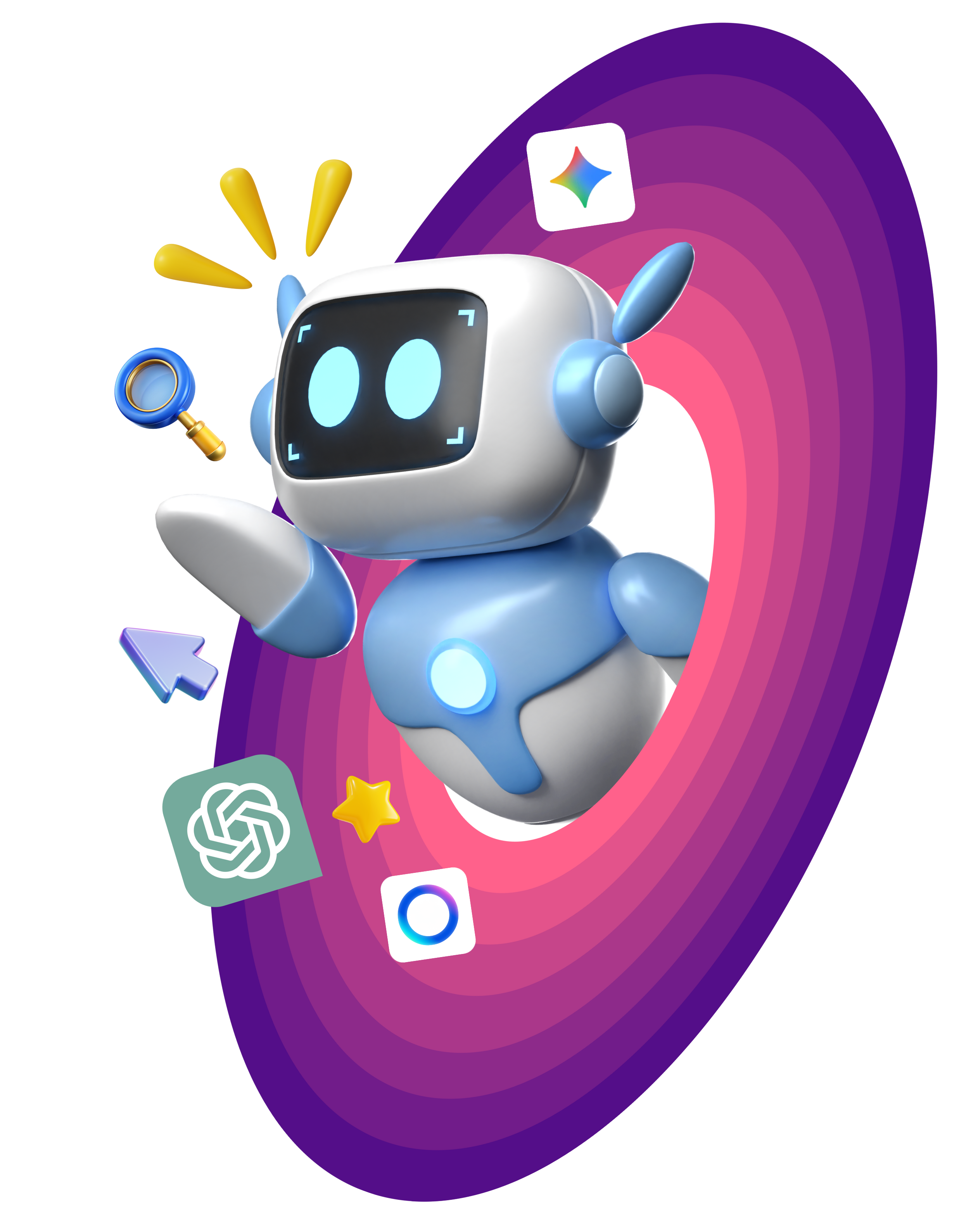Home / Search Engine Optimisation /
The growth of AI has ushered in a new era of search. Moving beyond the traditional keywords and rankings, it’s essentially a whole new channel and potential source of traffic. And it’s only going to increase in popularity and usage as time goes on.
Stay ahead of the game, with generative engine optimisation that gets you found, trusted and surfaced by AI search engines.
Whether you’re completely new to SEO and AI, or an established business looking to future-proof your search presence…

AI SEO (also known as generative engine optimisation or GEO) is the process of optimising your content to appear in AI-generated search results, whether that’s Google’s AI overviews or AI Mode, voice assistants or when users perform searches using AI engines, such as Claude, ChatGPT or Perplexity.
AI models rely on natural language processing and well-structured content to produce their results, both of which are essential to traditional SEO as well, so if you get AI SEO right, then you’re helping your “regular” SEO, too.
Our strategies take these signals into account to deliver more traffic, more trust and more visibility for our clients, across all search platforms.
If your content is coming up in AI search, it’s a sure sign that these engines (and likely traditional search engines) trust it. In turn, searchers will be more likely to trust it, click through to your site and convert.
Your customers are no longer just searching on Google or Bing; they’re using platforms such as ChatGPT, Perplexity and Claude to find the results that best match their needs and answer their questions. If your business isn’t appearing in these search results too, you risk getting left behind.
Ensuring your pages are crawlable, indexable, well-structured and rich in structured data will help both LLMs and traditional search engines better understand your content, making them more likely to display it for relevant queries.
The factors that make your content easy for LLMs to understand also help your readers. We’ll create content that’s concise and clear, using keyword research to identify prompts or questions and making use of headers, bullet points, FAQs and tables to create informative, easy-to-read and visually appealing web pages.
AI engines and LLMs often rely on data sources such as citation sites, best-of lists and reviews/ratings sites. Making sure that your business is listed on these trusted websites, and that your information is correct and up to date across platforms increases trust in your business from both LLMs and users.
The nature of AI search means that users are often lower down the funnel than in traditional search. Being visible for those vital, high-intent queries increases conversion rates and drives more qualified leads.



While AI search might have changed the way we approach our clients’ SEO strategies, when it comes down to it, good SEO is still good SEO. And we do VERY good SEO. Here are just some of the ways we help our clients get found in all the right places:
Selling online? We’ve got you covered. We’ll optimise product and category pages, craft compelling calls to action and make sure you’re appearing in Shopping listings, whether that’s on Google Search, AI Mode, ChatGPT or other platforms.
Well-written, well-structured content that’s optimised for real search queries and intent will always be the cornerstone of search, whether through AI or traditional search engines. We’ll help your copy do all the talking, boosting clicks and conversions across the board.
We’ll help you identify and overcome any technical roadblocks to getting your content ranked. From crawl issues to broken links and implementing structured data, we’ll make it easy for search engines to crawl, understand and index your pages.
Behind every great piece of content is in-depth keyword research. We look at what your customers are really searching for and how AI platforms and search engines are interpreting that information to make sure your pages are as comprehensive and relevant as they can be.
Without the right tracking in place, you’ll never know the true value of your SEO efforts. We’ll help you set up your analytics to track where your visitors are coming from, how they’re moving through your site, and what’s converting and what’s not.
There’s no replacement for human expertise when it comes to writing content, however we do use AI within our workflows to speed up processes, improve decision making and make sense of large amounts of data.
Whether it’s using AI tools to enhance and expand keyword research, smarter bid management in PPC or creating interactive prototypes of new websites for clients to test, we’re always looking for new ways to bring these benefits to you.
Sign up to The Digital Maze Newsletter